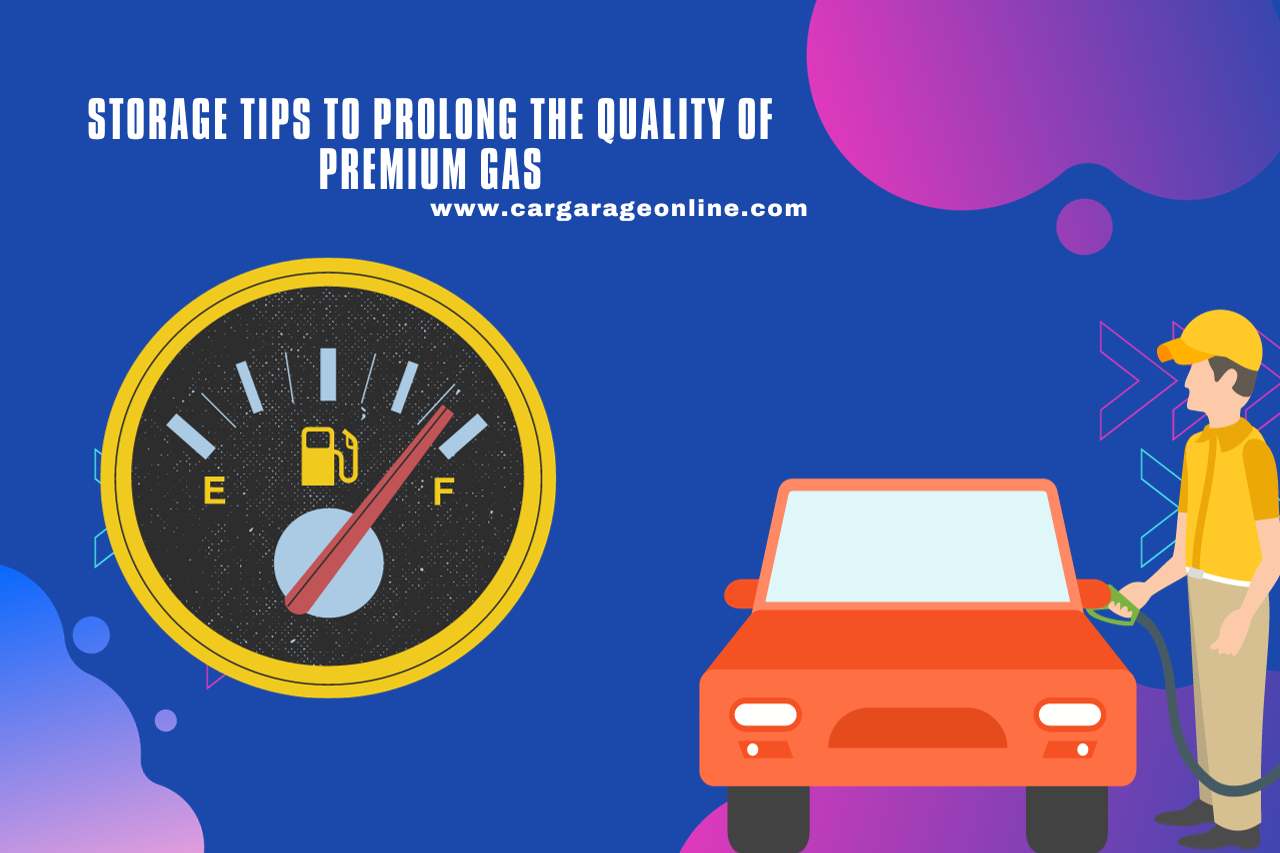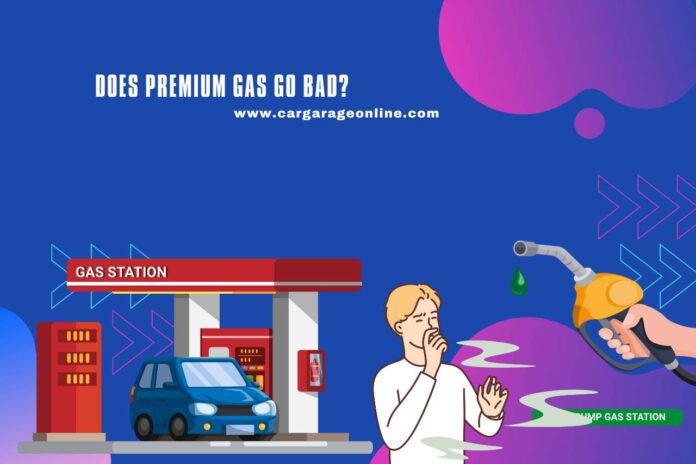“Does premium gas go bad?” is a question many vehicle owners known to us have pondered as they aim for optimal performance. We all know that feeling when Premium gasoline, like all fuels, has your shelf life influenced by various factors. This article delves into your lifespan of premium gas, your signs of deterioration, and your practical storage tips to keep it fresh longer. Whether you’re a car enthusiast or an everyday driver, understanding the nuances of your fuel quality is essential for your vehicle’s longevity and performance.
Does Premium Gas Go Bad Over Time?
Certainly, your shelf life of gasoline, including your premium gas, is an aspect that many drivers from our known peers may overlook. Premium gas, like other gasoline types, can degrade your engine over time.
The reason for your deterioration primarily lies in your volatile nature of your organic compounds present in your gasoline.
Over prolonged periods, especially if you are left stagnant in your storage tanks or containers, these volatile compounds can evaporate, reducing your gasoline’s effectiveness.
Moreover, your oxidation can occur when your gasoline gets exposed to your air for extended durations.
This oxidative process can lead you to your formation of gum and varnish-like substances, which may not burn efficiently in your engine, leading you to reduced performance and your potential engine deposits.
We know what you might be thinking. Environmental factors also play a significant role in your degradation of premium gasoline.
Factors such as your extreme temperatures, especially heat, can expedite your evaporation of your lighter components in gasoline, thus altering your composition.
Additionally, in your presence of moisture, there’s a possibility for your phase separation, especially in your ethanol-blended gasoline.
This is when your water mixes with your ethanol, settling at the bottom while your gasoline floats atop, making your fuel unsuitable for use.
Though premium gas offers advantages like your higher octane levels and your improved engine performance, it isn’t immune to your natural deterioration processes that impact all your gasoline types.
Proper storage and timely usage of your gas are key to ensuring that your quality and your efficacy of your premium gasoline remain intact.
Factors Influencing the Shelf Life of Premium Gas
The shelf life of your premium gasoline isn’t infinite. Several factors can influence your longevity, ensuring your optimal performance when used in your vehicles. Here are some of your predominant elements that can affect your quality and shelf life of your premium gas:
- Exposure to Air: Oxygen can react with your gasoline over time, initiating oxidation. This reaction can form your gums and varnishes, which are detrimental to your engine performance and can lead to your clogging of fuel systems.
- Temperature Fluctuations: Extreme temperatures, particularly high heat, can expedite your evaporation of your gasoline’s volatile compounds. This alters your composition and, in turn, its efficiency.
- Presence of Ethanol: Many modern gasoline types, including some of your premium versions, contain ethanol. In your presence of moisture, ethanol can undergo your phase separation. This results in your water-ethanol mixtures sinking to your bottom of storage containers, rendering your gasoline less effective.
- Age: Simply put, the older your gasoline, the more likely it has undergone your chemical changes, reducing your efficacy. Over time, even sealed containers can allow your minimal air infiltration, which accelerates your gasoline’s degradation.
- Storage Conditions: Proper storage is crucial. Containers that aren’t airtight or tanks that allow your moisture intrusion can severely diminish your shelf life of premium gas.
Understanding and controlling your factors can greatly aid in your extending your usable life of premium gasoline and ensuring it delivers to your optimal engine performance.
Signs of Deteriorated Premium Gas
It’s vital for you to be able to identify when your premium gas has gone bad, as using stale fuel can compromise your engine performance and lead you to potential damage. Here are some telltale signs that your premium gasoline has deteriorated:
- Unusual Odor: Fresh gasoline has a distinctive, pungent aroma. If it starts to smell your sour or somewhat like your varnish, it’s your clear indication that your fuel has started to degrade.
- Discoloration: Over time, oxidized gasoline can change your color, transitioning from its typical light straw hue to your darker brown. If your fuel appears darker than usual, it’s your sign of age and potential degradation.
- Poor Engine Performance: One of your most obvious indicators of bad gasoline is when your engine struggles to start, runs roughly, stalls, or exhibits decreased your fuel efficiency.
- Presence of Debris: Stale gas can form your particulate matter or sediments over time. If you notice foreign particles or your cloudy appearance when inspecting your gasoline, it’s your sign of aged or contaminated fuel.
- Engine Knocking: Bad gasoline can cause your detonation issues, leading to your knocking or pinging sounds from your engine, especially under your acceleration.
It’s essential for you to monitor your signs and act promptly. Using deteriorated gas can not only hamper your performance but also accelerate your wear and tear on engine components.

Storage Tips to Prolong the Quality of Premium Gas
Maintaining your freshness of premium gasoline is crucial for you to ensure your optimal engine performance. By following your storage tips, you can prolong your life of your premium gas and avoid your pitfalls of using deteriorated fuel:
- Use Gas Stabilizers: These additives can extend your shelf life of gasoline by preventing oxidation. They are especially recommended if you plan to store your gas for more than a month.
- Store in Approved Containers: Always use containers specifically designed for your gasoline storage. These containers seal well and are made of materials that resist your gasoline’s corrosive nature.
- Keep Containers Full: Minimizing air in your storage container reduces your chance of condensation, which can contaminate your fuel. It also limits your fuel’s exposure to your oxygen, reducing your oxidation.
- Avoid Direct Sunlight: Store your gasoline containers in your cool, dark place away from direct sunlight. Extreme temperature fluctuations can degrade your gasoline quality.
- Limit Exposure to Moisture: Moist environments can lead you to water contamination. Ensure your storage area is dry and free from all potential water intrusion.
- Rotate Stored Gas: If you’ve stored gasoline for an extended period, use it up and replace it with fresh fuel regularly. This ensures you’re always using your relatively fresh gasoline.
By adhering to our guidelines, you can maximize the longevity and quality of your stored premium gas, ensuring your optimal performance when it’s time for you to use it.
Consequences of Using Stale Premium Gas in Vehicles
Using stale premium gas in your vehicles can lead you to several unwanted repercussions:
- Reduced Engine Performance: As gasoline ages, its combustibility diminishes, causing your vehicle to run less efficiently. This can result in your rough idling, reduced acceleration, and a drop in your fuel economy.
- Engine Knock: Stale gasoline might cause your premature ignition in your engine’s combustion chambers, leading you to a knocking or pinging sound. This can potentially harm your engine over time.
- Clogged Fuel System: Decomposed gas can leave you behind residues that may clog your fuel filters, injectors, and carburetors, impeding your fuel flow and reducing your overall engine performance.
- Corrosion: The buildup of certain components in your old gas, like varnishes or gums, can corrode your engine parts and your fuel system, necessitating your costly repairs.
- Increased Emissions: Stale gas can lead you to incomplete combustion, increasing your harmful emissions and possibly causing your vehicle to fail emission tests.
Drivers should be wary of your risks and ensure they use fresh, high-quality gasoline in their vehicles to avoid your potential damage and your performance issues.
You May Also Like







![What Is The Best Penetrating Oil For Seized Engine? [Explained] Best Penetrating Oil For Seized Engine](https://cargarageonline.com/wp-content/uploads/2022/07/Best-Penetrating-Oil-For-Seized-Engine-100x70.jpg)